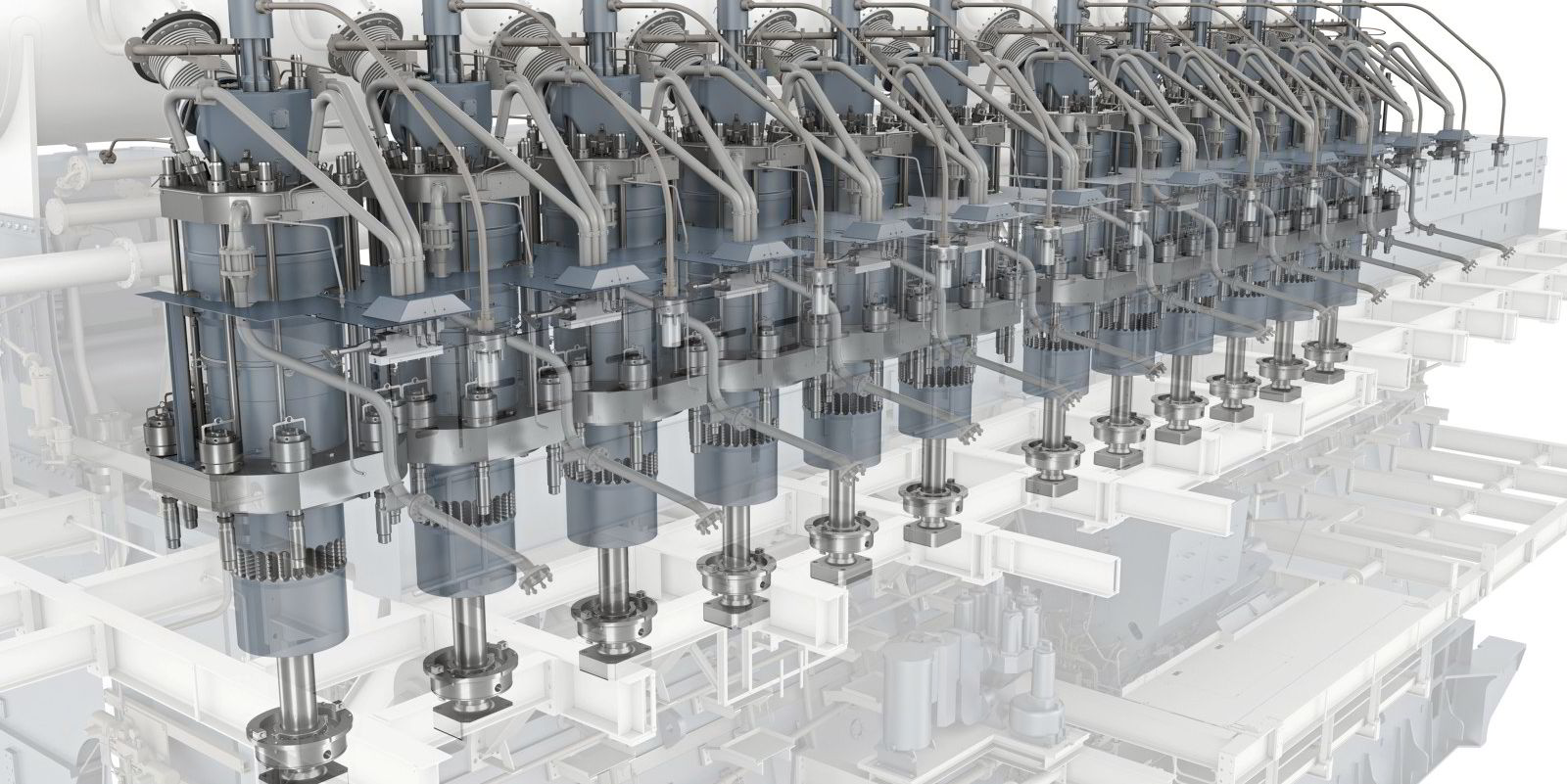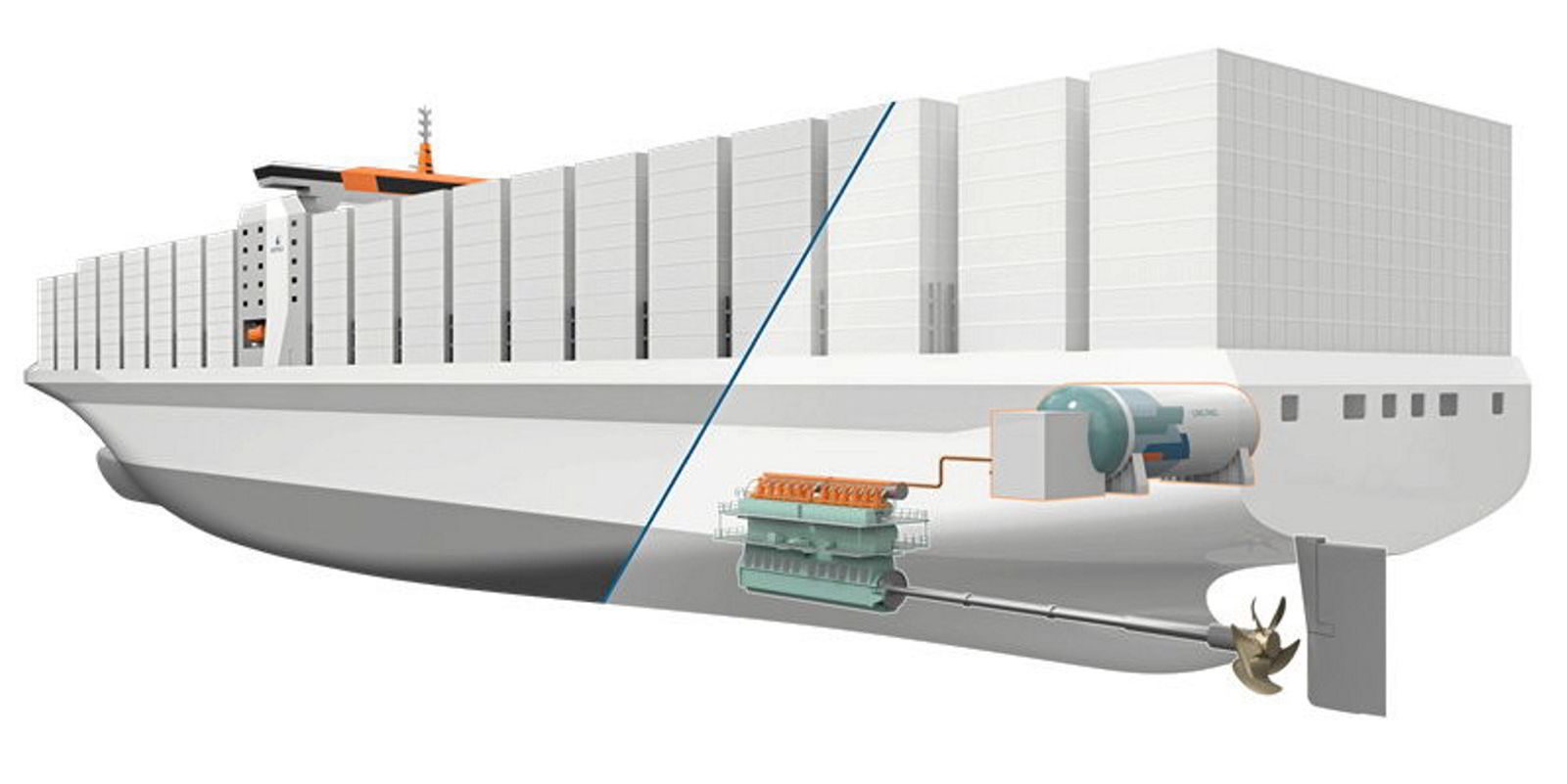Wartsila Marine Power is launching a radical de-rating programme for two-stroke engines that can cut fuel consumption by up to 15% and help older ships comply with Carbon Intensity Indicator (CII) regulations as they get tougher.
The Wartsila Fit4Power conversion is aimed at its engines fitted to large containerships built from around 2005 that may have problems complying with CII because they were built for high-speed operation.
The scheme, which in effect rebuilds and replaces components for the top sections of the RT-flex96C engines, reduces their bore size by 25%, significantly improving combustion efficiency and cutting emissions, according to Wartsila.
Tests following a pilot conversion last October show an average 10% to 15% reduction in consumption is possible, depending on the operating profile of a vessel, said Nanda Sangram, head of technology for Wartsila Marine Power’s two-stroke business unit.
The pilot project de-rated the engine from an output of 68 MW at 102 rpm to 37 MW at 83 rpm, he told TradeWinds.
That would cut an average 2,000 tonnes of fuel use and achieve savings of 6,400 tonnes of CO2 emissions per year by reducing engine power for a design speed of 26 to 31 knots to 16 to 19 knots — in line with speeds vessels are being operated at now.
Lower speeds are achievable if desired, allowing an engine to run easily at about 25% of its rated output, while retaining capacity to accelerate if necessary, Sangram said, depending on the power output desired by the owner.
The conversion takes three to four weeks to be done alongside a berth that has cranes, with the last week being sea trails, at an average cost varying from $4.5m to $6m, depending on the scope of the work.
Sangram said Wartsila already has an orderbook for more than 20 conversions, with others under discussion, as there is growing demand for extending the life of large container ships that would otherwise probably need to be scrapped 10 or 15 years early.

The process also reduces NOx emissions by about 30% as well as cutting CO2 by 15% to 18%.
The conversion is also compatible with Wartsila’s Fit4Fuels scheme that is under development to enable existing engines to be upgraded to allow them to switch to alternative fuels, including LNG, methanol and ammonia.
Wartsila added that while conventional de-rating merely tunes engines for operation at lower loads, Fit4Power involves reducing the bore diameter of engine cylinders and introducing a new combustion chamber design, enabling the engine to run at optimal loads and higher fuel efficiency from higher compression ratios and firing pressure.
Radical de-rating extends the CII-compliant lifetime of the vessel by three to five years, it added.
The company has not yet seen demand for conversions on slower-speed engines for bulkers or more modern high-speed engines used in boxships.
Wartsila launched a Two-Stroke Future Fuels Conversion platform, developed in collaboration with MSC Shipmanagement, in early 2022 to enable conversion of engines to operate on future fuels.





